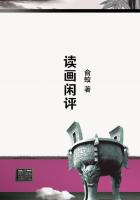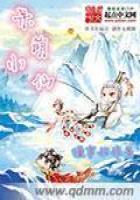So far as women have been able, in Chicago at least, to help the poorest workers in the sweatshops, it has been accomplished by women organized into trades unions. The organization of Special Order Tailors found that it was comparatively ****** for an employer to give the skilled operatives in a clothing factory more money by taking it away from the wages of the seam-sewer ( 193) and button-holer. The fact that it resulted in one set of workers being helped at the expense of another set did not appeal to him, so long as he was satisfying the demand of the union without increasing the total cost of production. But the Special Order Tailors, at the sacrifice of their own wages and growth, made a determined effort to include even the sweat-shop workers in the benefits they had slowly secured for themselves. By means of the use of the label they were finally able to insist that no goods should be given out for home-finishing save to women presenting union cards, and they raised the wages from nine and eleven cents a dozen for finishing garments, to the minimum wage of fifteen cents. They also made a protest against the excessive subdivision of the labor upon garments, a practice which enables the manufacturer to use children and the least skilled adults. Thirty-two persons are commonly employed upon a single coat, and it is the purpose of the Special Order Tailors to have all the machine work performed by one worker, thus reducing the number working on one coat to twelve or fourteen. As this change will at the same time demand more skill on the part of the operator, and will increase the variety and interest in his work, these garment-makers are sacrificing both time and money for the defence of ( 194) Ruskinian principles -- one of the few actual attempts to recover the "joy of work." Although the attempt was, of course, mixed with a desire to preserve a trade from the invasion of the unskilled, and a consequent lowering of wages, it also represented a genuine effort to preserve to the poorest worker some interest and value in the work inself.
It is most unfair, however, to put this task upon the trades unionists and to so confuse it with their other efforts that it, too, becomes a cause of warfare. The poorest women are often but uncomprehending victims of this labor movement of which they understand so little, and which has become so much a matter of battle that helpless individuals are lost in the conflict.
A complicated situation occurs to me in illustration. A woman from the Hull-House Day Nursery came to me two years ago asking to borrow twenty-five dollars, a sum her union had imposed as a fine. She gave such an incoherent account of her plight that it was evident that she did not in the least understand what it was all about. A little investigation disclosed the following facts: The "Nursery Mother," as I here call her for purposes of identification, had worked for a long time in an unorganized overall factory, where the proprietor, dealing as he ( 195) did in goods purchased exclusively by workingmen, found it increasingly difficult to sell his overalls because they did not bear the union label. He finally made a request to the union that the employees in his factory- be organized. This was done, he was given the use of the label, and upon this basis he prospered for several months.
Whether the organizer was "fixed" or not, the investigation did not make clear; for, although the "Nursery Mother," with her fellow-workers, had paid their union dues regularly, the employer was not compelled to pay the union scale of wages, but continued to pay the same wages as before.
At the end of three months his employees discovered that they were not being paid the union scale, and demanded that their wages be raised to that amount. The employer, in the meantime having extensively advertised his use of the label, concluded that his purpose had been served, and that he no longer needed the union He refused, therefore, to pay the union scale, and a strike ensued. The "Nursery Mother" went out with the rest, and within a few days found work in another shop, a union shop doing a lower grade of manufacturing. At that time there was no uniform scale in the garment trades, and although a trade unionist working for union wages, she received lower wages than she had under ( 196) the non-union conditions in the overall factory.
She was naturally much confused and, following her instinct to get the best wages possible, she went back to her old place. Affairs ran smoothly for a few weeks, until the employer discovered that he was again losing trade because his goods lacked the label, whereupon he once more applied to have his shop unionized. The organizer, coming back, promptly discovered the recreant "Nursery Mother," and, much to her bewilderment, she was fined twenty-five dollars. She understood nothing clearly, nor could she, indeed, be made to understand so long-as she was in the midst of this petty warfare.
Her labor was a mere method of earning money quite detached from her European experience, and failed to make for her the remotest connection with the community whose genuine needs she was supplying. No effort had been made to show her the cultural aspect of her work, to give her even the feeblest understanding of the fact that she was supplying a genuine need of the community, and that she was entitled to respect and a legitimate industrial position. It would have been necessary to make such an effort from the historic standpoint, and this could be undertaken only by the community as a whole and not by any one class in it. Protective legislation would be but the first step toward ****** her a ( 197) more valuable producer and a more intelligent citizen. The whole effort would imply a closer connection between industry and government' and could be accomplished intelligently only if women were permitted to exercise the franchise.














